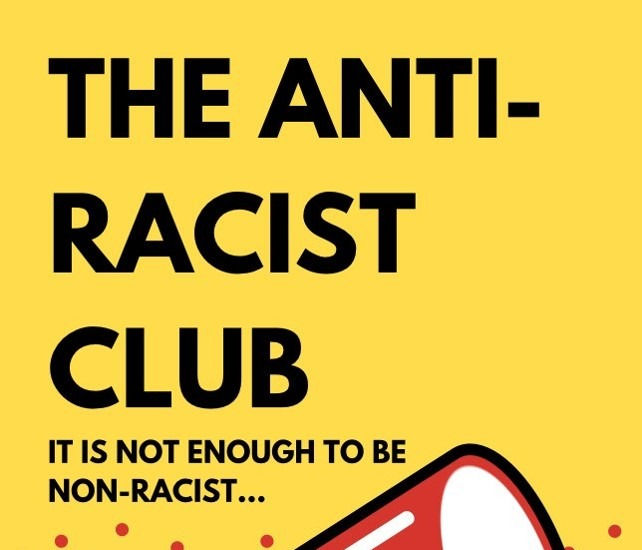Creating a Safe Space with The Anti-Racist Educator
- Feb 14, 2019
- 3 min read
Updated: Feb 15, 2019
During my recent research trip to the USA, I quickly realised that safe spaces for mutual, fruitful racial discourse are key to challenging racism. A safe space is a physical or virtual space where emotions can exist – racism is an emotional topic after all. According to Dr Sandra Chapman, the Director of Equity and Community at the Elizabeth Irwin High School in New York:
“when we stifle or encourage people to be stoic about race in education, we make it an intellectual exercise. We need students and adults to feel the emotions in their heart, not just process things in their brains, in order for people to be motivated to create change in their communities.”
Personally, I have been guilty of trying to make race a strictly intellectual topic, backed up by lots of research and evidence, while trying to repress my anger, pain and fears in front of white people. Especially for educators of colour, as soon as you show your emotions when talking about race in schools, you risk being dismissed as unprofessional, as pulling out the race card, receiving eternal resentment, if not disciplinary action, and being cast away as a stereotype like the “angry black woman”. All of these consequences are a result of white fragility, a term coined by Robin DiAngelo to describe the discomfort white people experience when discussing race (2018). When you are the minority educator of colour in a majority white workplace, white fragility will work hard to silence you, your emotions and your experiences, while maintaining the status quo that privileges whiteness. It isn’t a coincidence that in “The Rules of Racial Engagement for (Possible) Survival in a White World”, not showing emotion is a recurrent idea because “emotion (irrespective of its appropriateness to the context) is not a license readily available to persons of colour” (Rollock, 2012).

Creating safe spaces is necessary not only for our sanity and for the validation of our experiences, but also for the opportunity to create a collective voice and a collective presence in a field where colour is too often absent or erased. As the recent report Teaching in a Diverse Scotland: Increasing and Retaining Minority Ethnic Educators rightly pointed out, the number of BME teachers across the whole profession is 672 or 1.4% of the workforce, while the total BME population in Scotland is 4% and it is more concentrated in certain areas – 12% in Glasgow for example (2018). And that doesn’t even depict the increasing number of BME pupils in classrooms, excluding adults, as a result of recent waves of migration.
Being part of the BME mentoring and coaching programme launched by the Scottish Association for Minority Ethnic Educators (SAMEE) allowed me to gain the confidence I needed to take a bold step forward and create this platform. Online platforms are powerful tools for activism and it was clear that many educators of colour crave more safe spaces for honest expressions of their racial experiences without negative repercussions in the workplace.
Hopefully, this platform will equally empower educators of colour, as well as white educators, by giving them the tools to raise their racial consciousness and racial literacy. Because it is one thing to experience or witness racism, but it is another thing to fully comprehend the racial power structures in society that have allowed racism to operate and evolve for centuries. Many of our classrooms and schools are microcosms of such power structures and we are all actors within these hierarchies, whether we know or not. We need safe spaces to explore these structures and question our roles in perpetuating (intentionally or not) and (intentionally) challenging racism.
References:
DiAngelo, R. (2018). White Fragility. Boston: Beacon Press
Rollock, N. (2012). “The Invisibility of Race: Intersectional Reflections on the Liminal Space of Alterity” in Race, Ethnicity and Education. 15(1): 65 – 84
The Scottish Association for Minority Ethnic Educators (SAMEE) is a registered charity free for all BME educators to join: https://www.samee.org.uk/
Scottish Executive, (2018). Teaching in a Diverse Scotland: Increasing and Retaining Minority Ethnic Educators.



This helpful resource introduces meaningful anti-racist television content that encourages awareness and https://titanresearch.ca/ empathy. values how the article promotes education through storytelling, empowering viewers to engage in important conversations and develop a deeper understanding of social justice issues.
A fantastic list for discovering meaningful and impactful television content. Representation and education through media https://www.burloakcentredentistry.com/ are so important. values resources that encourage awareness, understanding, and social responsibility, helping viewers engage with thoughtful storytelling that sparks positive conversations.
A very helpful resource for discovering meaningful and educational television content. The recommendations https://www.auburncentredental.com/ promote awareness, empathy, and critical thinking. we appreciate platforms that encourage inclusive storytelling and thoughtful media consumption that supports social understanding and positive change.
A valuable resource https://bgenerous.com/ highlighting anti-racist television shows that educate and inspire meaningful conversations. supports content that encourages awareness, empathy, and cultural understanding, helping communities grow stronger through thoughtful storytelling and diverse representation.
A fantastic resource for discovering impactful anti-racist television shows. Representation and education through https://pettransportpro.com/ media are crucial. we believe inclusive storytelling strengthens communities, broadens perspectives, and supports positive social transformation through thoughtful and engaging entertainment choices.